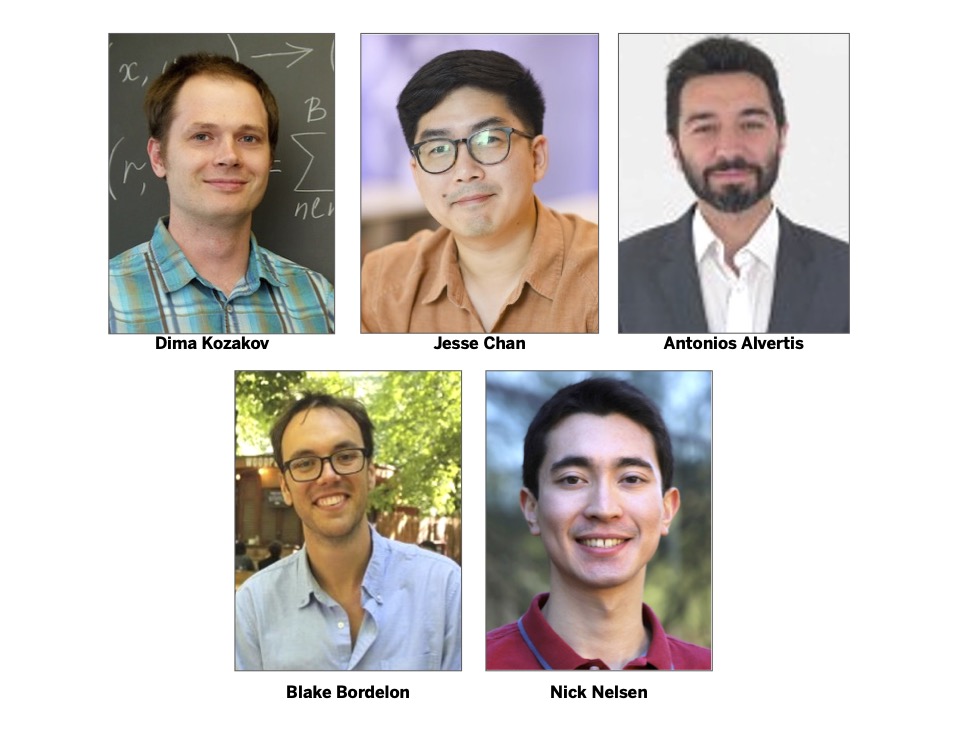The Oden Institute for Computational Engineering and Sciences is thrilled to welcome five new exceptional faculty who will expand the University’s research and teaching expertise in the key focus areas of Scientific Machine Learning, Artificial Intelligence, High-Performance Computing, and Quantum Materials.
This addition of five new Principal Faculty - with academic homes in the Departments of Molecular Biosciences, Neuroscience, Physics, and Aerospace Engineering & Engineering Mechanics – is a testament to the Oden Institute’s commitment to fostering high-impact research collaborations.
“Welcoming new faculty to our interdisciplinary community is exciting and energizing,” said Karen Willcox, Oden Institute Director. “We take pride in the Institute’s ability to recruit established leaders and rising stars whose excellence in research aligns with both our mission to advance the frontiers of computation and the areas of strategic growth for our academic partners. These new faculty reflect our strategic investment in computational life sciences and AI, as well as a continued investment in shaping the future of engineering. We are delighted to have contributed to such a successful campus-wide faculty hiring initiative to drive scientific discovery and innovation.”
Tenured faculty
Dima Kozakov joins as professor in the Department of Molecular Biosciences and W. A. "Tex" Moncrief, Jr. Chair in Computational Life Sciences and Biology in the Oden Institute in August 2025. Kozakov will direct an interdisciplinary center for computational biosciences with a focus on AI-driven drug discovery. He develops computational models of protein-protein interactions, utilizing physics-aware deep learning of molecular interactions to explain mechanisms of life and predict the effects of therapeutic compounds on healthy and diseased cells. His research in molecular systems biology has played a significant role in advancing drug discovery by enabling mechanistic insights into oncogenic pathways, drug resistance, and therapeutic targeting. Kozakov received his Ph.D. in Biomedical Engineering at Boston University in 2006.
Jesse Chan joins as associate professor in the Oden Institute and in the Department of Aerospace Engineering and Engineering Mechanics. His research focuses on physics-based simulations of fluid dynamics and wave propagation for scientific and environmental applications. He develops theory and methods to advance the accurate and efficient numerical solutions of time-dependent partial differential equations and the use of high-performance computing to generate predictive simulations. His work has advanced state-of-the-art in simulation capabilities for aerospace applications involving high-speed fluid flows over geometrically complex objects. Chan received his PhD in Computational Sciences, Engineering and Mathematics from the University of Texas at Austin in 2013.
